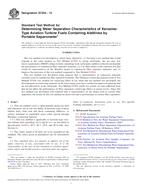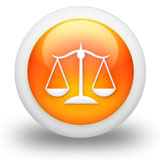Potřebujeme váš souhlas k využití jednotlivých dat, aby se vám mimo jiné mohly ukazovat informace týkající se vašich zájmů. Souhlas udělíte kliknutím na tlačítko „OK“.
ASTM D7224-13
Standard Test Method for Determining Water Separation Characteristics of Kerosine-Type Aviation Turbine Fuels Containing Additives by Portable Separometer
Automaticky přeložený název:
Standardní zkušební metoda pro stanovení vodě Rozdělovací Charakteristika Petrolej - Type letecké turbínové obsahující aditiva přenosnými Separometer
NORMA vydána dne 15.6.2013
Informace o normě:
Označení normy: ASTM D7224-13
Poznámka: NEPLATNÁ
Datum vydání normy: 15.6.2013
Kód zboží: NS-37919
Počet stran: 15
Přibližná hmotnost: 45 g (0.10 liber)
Země: Americká technická norma
Kategorie: Technické normy ASTM
Anotace textu normy ASTM D7224-13 :
Keywords:
additives, aviation turbine fuel, coalescence, jet fuel, micro-separometer, MSEP rating, surfactant, water separation, ICS Number Code 75.160.20 (Liquid fuels)
Doplňující informace
| Significance and Use | ||||||||||||
|
5.1 This test method provides a measurement of the presence of surfactants in aviation turbine fuels. Like previous obsolete Test Methods D2550 and D3602 and current Test Method D3948, this test method can detect trace amounts of refinery treating chemicals in fuel. The test methods can also detect surface active substances added to fuel in the form of additives or picked up by the fuel during handling from point of production to point of use. Some of these substances degrade the ability of filter separators to separate free water from the fuel. 5.2 This test method yields approximately the same (low) MSEP ratings as Test Method D3948 for fuels that contain strong surfactants. 5.2.1 This test method will give approximately the same MSEP ratings for Jet A, Jet A-1, JP-5, JP-7, and JP-8 fuels as Test Method D3948 when testing reference fluids. 5.3 The MSEP ratings obtained by this test method are less affected by weak surfactants than Test Method D3948. Somewhat higher MSEP ratings for Jet A, Jet A-1, JP-5, JP-7, and JP-8 fuels are obtained by this test method than those obtained by Test Method D3948 when additives such as static dissipater additives (SDA) and corrosion inhibitors are present in the fuel. This correlates with the satisfactory performance of filter separators for such fuels, when wet. However, these same additives adversely affect the MSEP ratings obtained by Test Method D3948 by erroneously indicating that such additized fuels would significantly degrade the ability of filter separators to separate free water from the fuel in actual service. 5.4 The Micro-Separometer instrument has an effective measurement range from 50 to 100. Values obtained outside of those limits are undefined and invalid. 1.1 This test method covers a rapid
portable means for field and laboratory use to rate the ability of
kerosine-type aviation turbine fuels, both neat and those
containing additives, to release entrained or emulsified water when
passed through fiberglass coalescing material.
1.1.1 This test method is applicable to kerosine-type aviation turbine fuels including: Jet A and Jet A-1 (as described in Specification D1655); JP-5, JP-7, JP-8, and JP-8+100. (See Section 6.) 1.2 The values stated in SI units are to be regarded as the standard. The values given in parentheses are for information only. 1.3 This standard does not
purport to address all of the safety concerns, if any, associated
with its use. It is the responsibility of the user of this standard
to establish appropriate safety and health practices and determine
the applicability of regulatory limitations prior to use.
Standard Test Method for Determining
Water Separation Characteristics of Diesel Fuels by Portable
Separometer Method of Test for Water Separation
Characteristics of Aviation Turbine Fuels (Withdrawn 1989) Test Method for Water Separation
Characteristics of Aviation Turbine Fuels (Withdrawn 1994) Standard Test Method for Determining
Water Separation Characteristics of Aviation Turbine Fuels by
Portable Separometer Standard Practice for Aviation Fuel
Sample Containers for Tests Affected by Trace Contamination Standard Specification for Aviation
Turbine Fuels (Includes all amendments and changes 10/11/2023). |
Doporučujeme:
Aktualizace zákonů
Chcete mít jistotu o platnosti užívaných předpisů?
Nabízíme Vám řešení, abyste mohli používat stále platné (aktuální) legislativní předpisy.
Chcete vědět více informací? Podívejte se na tuto stránku.




 Cookies
Cookies
